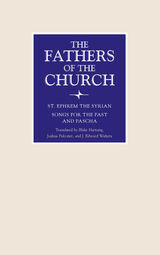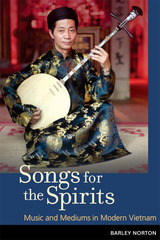

Songs for the Spirits examines the Vietnamese practice of communing with spirits through music and performance. During rituals dedicated to a pantheon of indigenous spirits, musicians perform an elaborate sequence of songs--a "songscape"--for possessed mediums who carry out ritual actions, distribute blessed gifts to disciples, and dance to the music's infectious rhythms. Condemned by French authorities in the colonial period and prohibited by the Vietnamese Communist Party in the late 1950s, mediumship practices have undergone a strong resurgence since the early 1990s, and they are now being drawn upon to promote national identity and cultural heritage through folklorized performances of rituals on the national and international stage.
By tracing the historical trajectory of traditional music and religion since the early twentieth century, this groundbreaking study offers an intriguing account of the political transformation and modernization of cultural practices over a period of dramatic and often turbulent transition. An accompanying DVD contains numerous video and music extracts that illustrate the fascinating ways in which music evokes the embodied presence of spirits and their gender and ethnic identities.
READERS
Browse our collection.
PUBLISHERS
See BiblioVault's publisher services.
STUDENT SERVICES
Files for college accessibility offices.
UChicago Accessibility Resources
home | accessibility | search | about | contact us
BiblioVault ® 2001 - 2024
The University of Chicago Press









